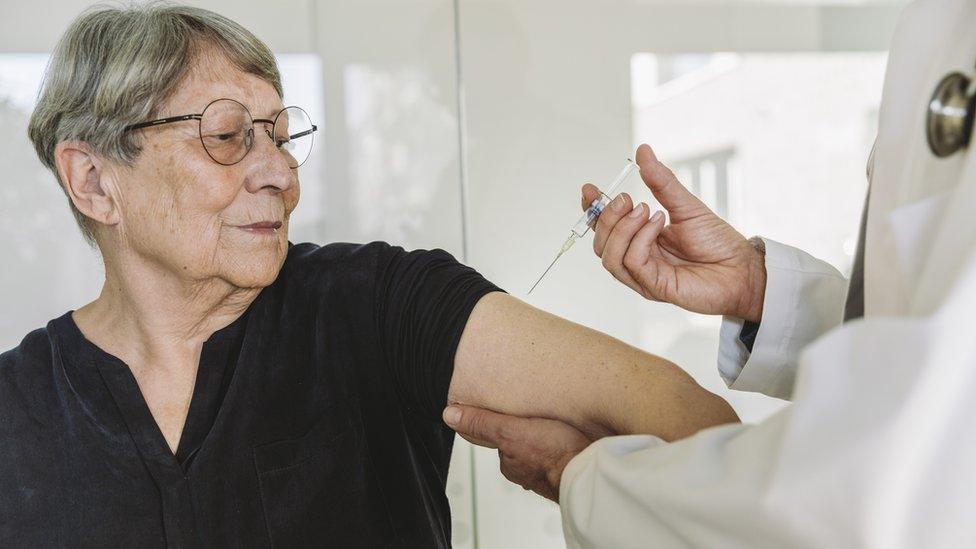Covid-19: Boris Johnson makes daily jab pledge as Army helps rollout
- Published
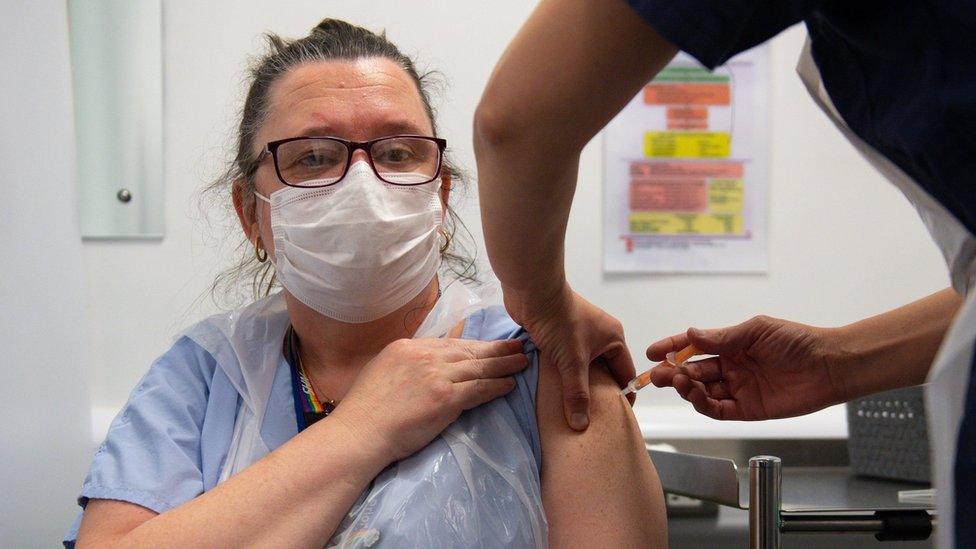
The coronavirus vaccine rollout is a national challenge requiring an unprecedented effort - involving the armed forces - Boris Johnson says.
The PM confirmed almost 1.5 million people in the UK have now received at least one dose of a Covid vaccine.
More than 1,000 GP-led sites in England will be able to offer a total of "hundreds of thousands" of jabs each day by 15 January, he said.
The Army will use "battle preparation techniques" to help achieve that goal.
It came as a further 1,162 deaths within 28 days of a positive test were reported on Thursday - the second consecutive day of more than 1,000 recorded fatalities - and 52,618 new cases.
And as Simon Stevens, head of the NHS in England, warned 10,000 patients with Covid had been admitted to hospital since Christmas Day.
Speaking at a Downing Street news conference, Mr Johnson said there would likely be "lumpiness and bumpiness" in the rollout of vaccines.
He said: "Let's be clear, this is a national challenge on a scale like nothing we've seen before and it will require an unprecedented national effort.
"Of course, there will be difficulties, appointments will be changed but... the Army is working hand in glove with the NHS and local councils to set up our vaccine network and using battle preparation techniques to help us keep up the pace."
Alongside GPs, there will be 223 hospital sites and seven "giant vaccination centres" - as well as an initial 200 community pharmacies - offering jabs, Mr Johnson said.
Everyone will have a vaccination centre within 10 miles of their home, he added, with a "full vaccination deployment plan" to be published on Monday.
He also said there would be a national booking system for vaccinations - but did not give any more details.
Brigadier Phil Prosser said his task was to ensure everyone in England had equal access to the vaccine
Brigadier Phil Prosser, commander of military support to the vaccine delivery programme, told the news conference his team was "embedded" with the NHS.
He said his "day job" is to deliver combat supplies to UK forces in time of war, "at speed in the most arduous and challenging conditions".
The government has set a target to offer vaccination slots to 15 million in the top four priority groups - including all over-80s - by 15 February.
And Mr Johnson said that, with the Oxford-AstraZeneca vaccine available, he could pledge one of those groups - care home residents - would all receive their jab by the end of January.
The widespread rollout of the vaccine has begun in earnest with the first doses delivered during the day to family doctors for distribution.
But there were concerns from some GPs over supplies, as Health Secretary Matt Hancock said the levels of vaccine supply was the "rate-limiting" factor as jabs would be delivered as quickly as stock is available.
Hospital risk
It comes as some hospitals in England are at risk of becoming Covid-only sites, with rising admissions for the virus forcing trusts to cut back on other services.
The latest NHS statistics also show that there were 30,370 patients with Covid in UK hospitals on Tuesday, a much higher figure than the first peak in the spring of 2020.
Hospital leaders have warned medics are becoming increasingly stretched with "untrained staff" used to fill gaps.
At 20:00 GMT, people in some streets stepped out onto doorsteps to clap for the heroes of the pandemic, following a weekly initiative which gained popularity during the UK's first lockdown.
However, Thursday's clap for heroes was more muted than those seen last year, perhaps reflecting criticism the initiative had become politicised.

Supply the biggest hurdle

Lots of detail has been given about how the NHS - working hand-in-hand with the military - will be able to deliver the vaccines.
There will be more local vaccination centres, hospital hubs and even mass vaccination at sports stadiums.
Thousands of extra vaccinators have already been trained - and thousands more are waiting in the wings.
But the biggest hurdle the UK faces is vaccine supply.
If it is not available, it cannot be put in arms no matter how good the vaccination network is.
In the long-term, supply is not likely to be a problem - but in the coming weeks it could be tight.
There is enough vaccine in the country to offer all those at highest risk a jab by mid-February.
But it is not yet all ready for the NHS to use, either because the final safety checks have not been done or the vaccine has not been put into vials.
The former depends on lab work by the medicines regulator, while the latter is the job of a plant in Wrexham.
Each stage takes some time. The target is achievable, but a lot has to go right.

Sir Simon Stevens said there were 50% more coronavirus patients in England's hospitals now compared to the peak last April, affecting every region across the country.
He said: "That number is accelerating very, very rapidly... the pressures are real and they are growing."
In Northern Ireland, the Belfast Health Trust has said it has no other option but to cancel all of its urgent cancer surgery amid "highly significant" demand for bed space.
The cancelled operations will affect those patients for whom surgery could impact recovery and even survival, the trust said.
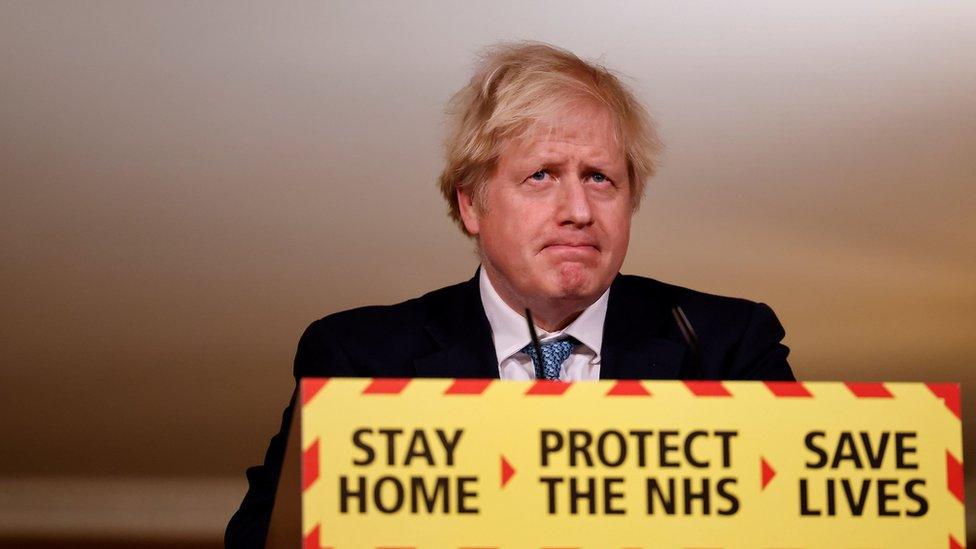
Boris Johnson said all parts of government would be throwing everything at the vaccination effort "round the clock"
In one positive development for hospitals, two more life-saving drugs that can cut deaths by a quarter in patients who are sickest with Covid have been cleared for widespread use, with immediate effect.
The anti-inflammatory medications, given via a drip, save an extra life for every 12 treated, researchers said, following NHS trials.
Elsewhere, the UK has implemented restrictions on travellers to England from countries near South Africa to stop the spread of the South African Covid variant.
Meanwhile, Mr Johnson and Sir Simon were asked about persistent social media claims that coronavirus does not exist - and that reports of packed hospital wards of people being treated are just a myth.
Sir Simon said that such misinformation was an "insult" to hard-working critical care staff.
"There is nothing more demoralising than having that kind of nonsense spouted when it is most obviously untrue," he said.


THE FRESH PRINCE OF BEL-AIR: Turn up the nostalgia with this classic 90s comedy
FILMS FOR EVERYONE: A huge selection of films to stream to make lockdown a bit more entertaining

Related topics
- Published7 January 2021
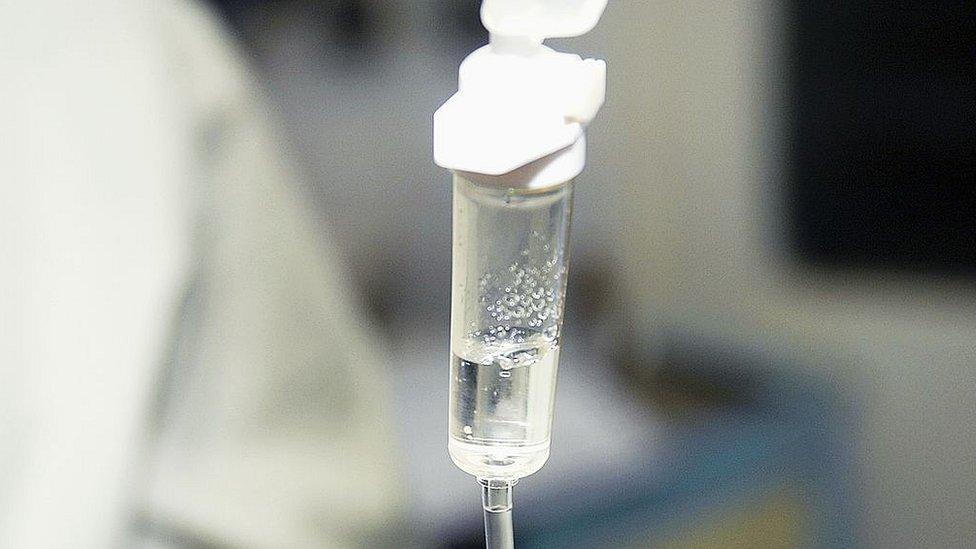
- Published7 January 2021
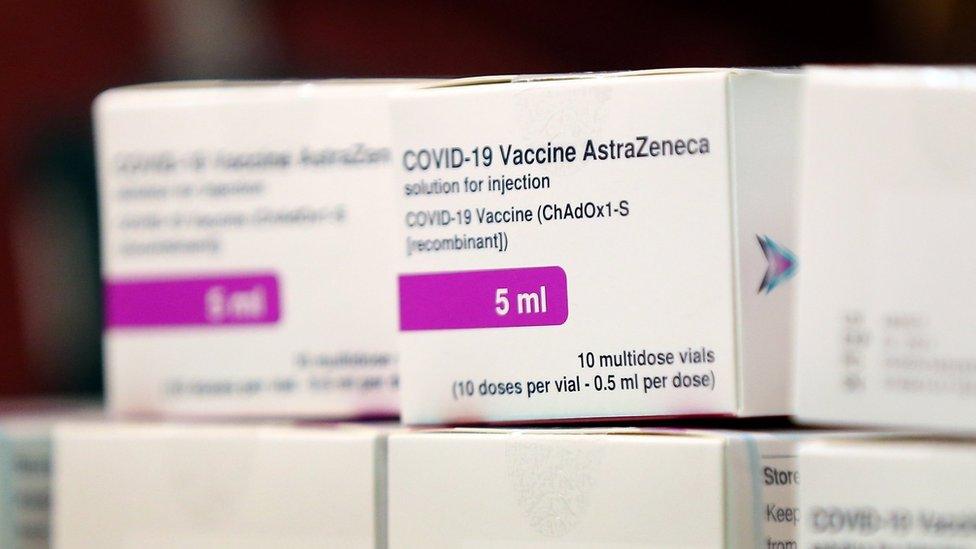
- Published7 January 2021
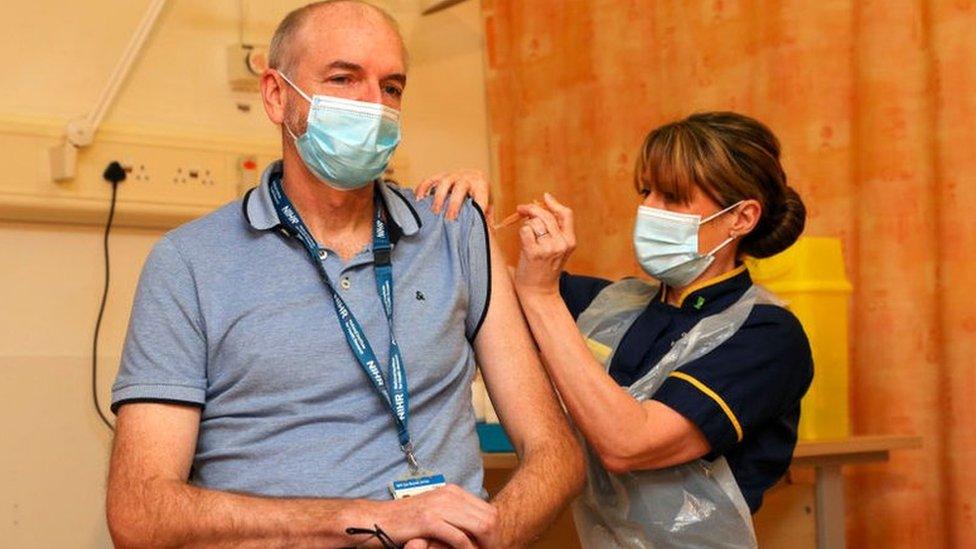
- Published6 January 2021
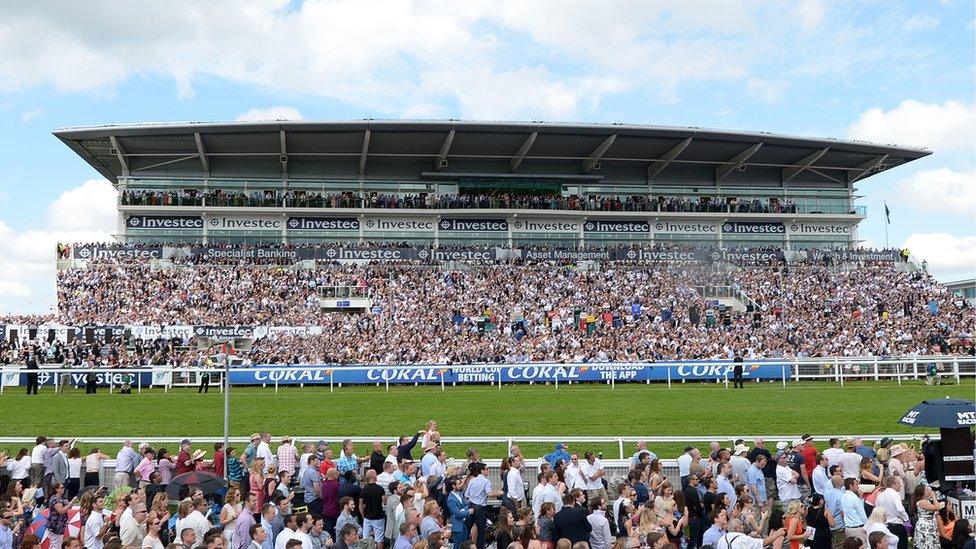
- Published2 December 2020
